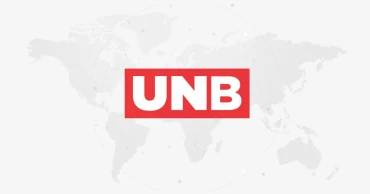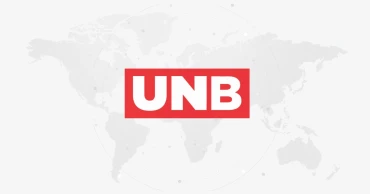Foreign-Affairs
UNDPR develops planning toolkit for SMEs
The United Nations Office for Disaster Risk Reduction (UNDRR), with the support of the Asian Disaster Preparedness Center (ADPC), developed a planning toolkit for Small and Medium Enterprises (SMEs) to revive their business operation to the new environment.
269 Rohingyas detained in Malaysia; Body found in damaged boat
Malaysian authorities detained 269 Rohingya refugees and found a body on board a suspected smuggling boat.
WB forecasts 1.6pc growth for Bangladesh
The World Bank in its latest forecast has predicted that the GDP growth rate in Bangladesh will come down to 1.6 percent in the current fiscal year.
Bangladesh to be voice of climate vulnerable countries: FM
Bangladesh has taken over the presidency of Climate Vulnerable Forum (CVF) and the Vulnerable Twenty (V20) Group of Ministers of Finance for the term 2020-2022 from Marshal Island and urge all to attach highest priority to CVF and V20.
Covid-19: Over 200 stranded non-resident Bangladeshis leave Dhaka for US
More than 200 stranded non-resident Bangladeshis including US immigrants, US immigrant visa holders and green card holders departed from Dhaka for Chicago by a special flight on Monday.
Flights on international routes to resume from 3rd week of June
Flights on international routes from Bangladesh will resume in the third week of June after over two months of suspension due to the coronavirus pandemic.
Shumona new Bangladesh Ambassador to Brunei
The government has appointed Nahida Rahman Shumona, currently serving as the Director General of Regional Organizations Wing in the Ministry of Foreign Affairs, as the next High Commissioner of Bangladesh to Brunei.
Presence of Chinese Corona-conquerors will be 'encouraging': FM
Foreign Minister Dr AK Abdul Momen on Monday said the presence of a Chinese medical experts team will act to encourage both doctors and patients in Bangladesh, as the country strives to bring its local epidemic under control amid the global coronavirus pandemic.
Nigeria collects coronavirus medicine from Bangladesh
Nigeria on Sunday has procured two types of coronavirus medicine – Remdesivir and Remivir – from Bangladesh on an emergency chartered flight.
US Embassy seeks applications for Fulbright FLTA program
The US Embassy in Dhaka is accepting applications for the 2021-2022 Fulbright Foreign Language Teaching Assistant (FLTA) program, which will take place August 2021 – May 2022.

.jpg)

.jpg)
.jpg)
.jpg)
.jpg)




